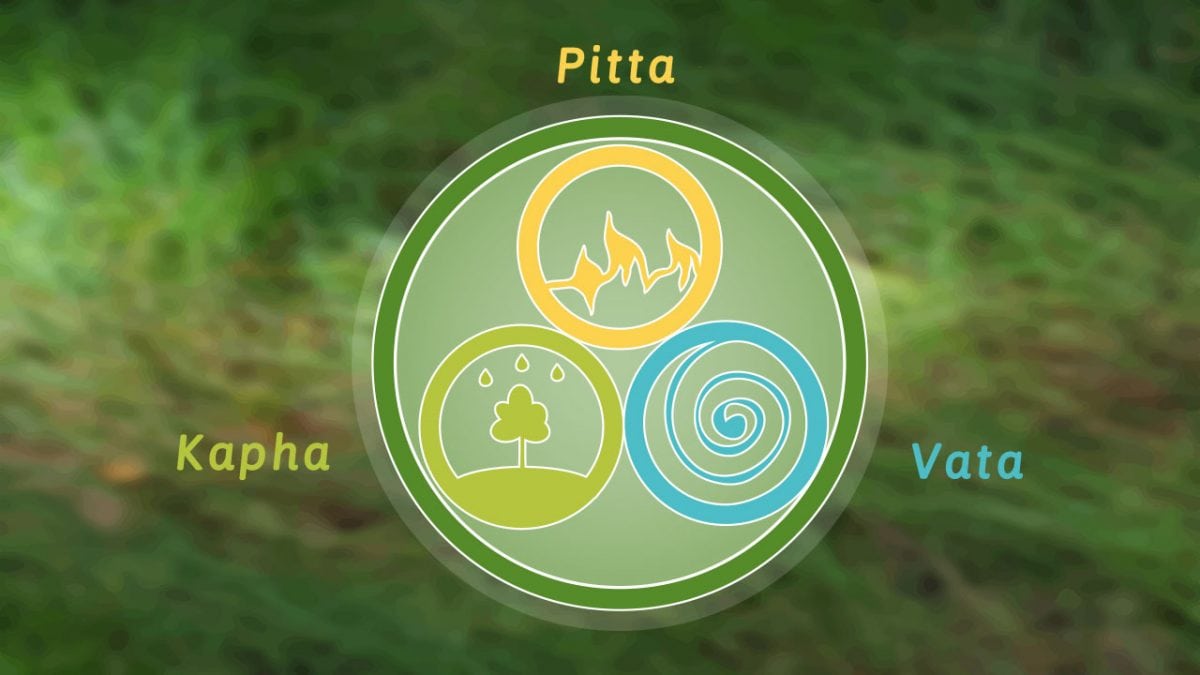
Tridoshas
Ayurvedic description of health and disease revolves around the concept of tridoshas – Vata, Pitta and Kapha
They are three biological humors or energetic principles of the human body.
Functions of Tridoshas
- assist the creation of various tissues of the body and to remove the waste from our body
- governs the entire physical system and unique constituent of each person.
- influence all the transformations, sensory functions, psycho-biological and physio-pathological changes.
- determines fundamental qualities of a person.
These energies are combination of five elements of nature.
Vata – Air & Space
Pitta – Fire & Water
Kapha – Earth & Water
Each person has unique combination of these energies. Some would have one predominant energy or a combination of two or more.
Vata – The Catabolic Dosha
The most powerful humor of the three since it is the driving force of the body. Since it is the combination of air and space, the qualities are similar to air.
Qualities :
Light, dry, subtle, moving, cold, dispersing, astringent, active, clear and rough. The person with Vata predominance are talkative, enthusiastic, creative, flexible, move & speak quickly
Season : Autumn
Time of the day : Early morning and afternoon.
Functions :
All eliminations – urine, feces, fetus, sweat, semen and others.
All movements – physical and mental -including respiration, heartbeat, motivation, muscular movements etc.
The sensory inputs are passed to brain
Metabolism – digestion
Types :
Prana Vata – Head – governs creativity, thinking, reasoning etc.
Udana Vata – Chest – governs voice, memory and thought process
Vyana Vata – Heart – governs the blood flow, heart rhythm, perspiration and sense of touch.
Samana Vata – Stomach – governs the movement of food through digestive track etc
Apana vata – Anal region – governs the elimination of urine, waste, menstrual cycle and sexual functions
Pitta – The Metabolic Dosha
Whenever a transformation takes place there is Pitta. It is the heat energy that transforms food into energy, absorption of nutrients and the body temperature.
Qualities : The qualities like hot, oily, sharp, liquid, sour and spreading nature belong to Pitta energy. The person with predominant Pitta energy are likely to be assertive with sharp tongue, competitive, sarcastic and self-confident.
Season : Summer
Time of the day: 10am to 2 pm and 10pm to 2am
Functions:
Metabolism at various levels
Feeling of hunger and thirst
Thermogenesis – maintaining body temperature.
Comprehension, reasoning, judgment
Courage to face the situation
Helps vision in transforming the external images to optic nerve impulses
Types
Sadhaka Pitta – governs the desires, spirituality, decision-making
Alochaka Pita – takes care of functioning of eyes.
Ranjaka Pitta – responsible for pure, toxin free, healthy blood.
Bhrajaka Pitta – controls skin pigmentation
Pachaka Pitta – From the small intestine controls digestion and absorption of nutrients.
Kapha – The Anabolic Dosha
Kapha is heaviest dosha that is responsible for lubrication – everything that helps to hold things together. This is the watery element that fills the empty spaces in body.
Qualities
Heavy, oily, dense, thick, static, moist, slow and soft are the characteristics that can be attributed to Kapha dosha. This gives heavy features, heavy bones and large physique to persons with predominant kapha.
Time of the day : 6am to 10 am and 6pm to 10pm.
Functions:
Physical strength
A stable grounding aspect to both mind and body
Provides fertility and virility
Provides ample lubrication to all joints and other places to prevent damage due to friction.
Gives fullness to structure of the body
Types :
Tarpaka kapha – Moisture in parts like nose, mouth, eyes and brain
Bhodaka kapha – governs the sensory organs of taste.
Kledaka kapha – found in stomach providing moisture to intestine to guide digestion
Sleshaka kapha – lubricates all joints of the body and makes the skin soft
Avalambaka kapha – found in chest lubricates the heart and throat.
The doshas share some qualities with other and may contradict with the third. thy have an innate quality to regulate and balance within themselves. When there is perfect balance in doshas we remain healthy in body, mind and spirit. These doshas basically are not substances, they are forces. They are susceptible to change in the human body with the influence of certain qualities and environmental changes. However Ayurveda classifies human body to be three types –
Mono types – One dosha predominates
Duo types – Two similar qualities of dosha present
Third type – Very rare one with all three doshas in equilibrium.
According to Ayurveda, keeping the doshas in equilibrium accounts for good health.
Contact us today for more information!







